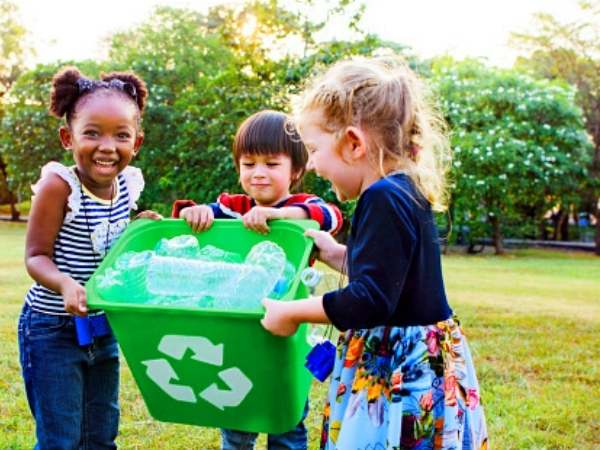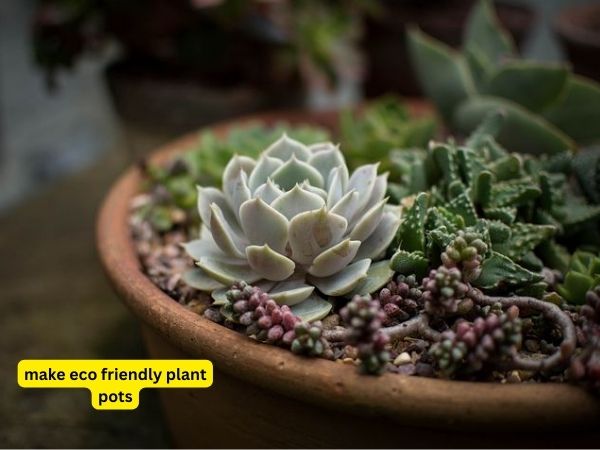How To Be Eco Friendly At School? (6 easy ways)
Today we discuss How To Be Eco Friendly At School. Going back to school doesn’t have to mean leaving your eco-friendly ways behind. There are many things you can do to make your school days more sustainable, from bringing your own lunch container to turning off the lights when you leave your dorm room. Keep reading for a few tips on how to green your campus life!
How To Be Eco Friendly At School?
Going green at school is not only good for the environment, but it can also save you money! Here are some tips on how to be eco-friendly at school:
-Bring your own reusable water bottle and coffee mug. This will reduce the amount of waste that goes into landfills.
-Pack your lunch in a reusable container. You can find some great lunch boxes and bags online or at your local store.
-Say no to plastic straws and opt for reusable metal or glass straws instead.
-Use a refillable notebook instead of buying new notebooks each semester. You can find some really cute ones online!
-Use Recycle paper, aluminum cans, and plastic bottles.
6 ways To Be Eco Friendly At School:
1. Bring your own water bottle and snacks to school to reduce waste:
There are a few ways to reduce waste at school while still being eco-friendly. Here are a few tips:
- Bring your own water bottle and snacks instead of buying them from the school cafeteria or vending machines. This will help reduce plastic waste and save money!
- Try to avoid using disposable cups, plates, and utensils. Bring your own reusable utensils and dishes instead.
- Reduce the amount of paper you use by printing on both sides of the paper and by taking notes and writing assignments in notebooks rather than on loose pieces of paper.
- compost food scraps from your lunch instead of throwing them away in the trash. this will help reduce the amount of waste produced at your school.
2. Use a reusable shopping bag when you go grocery shopping:
Reusable shopping bags are a great way to reduce the amount of plastic waste that you produce each year. When you go grocery shopping, simply bring your reusable shopping bag with you and fill it up with your groceries.
Grocery stores are starting to charge for plastic bags, and with good reason! Plastic bags are made from non-renewable resources and can take up to 1,000 years to decompose in a landfill.
Reusable shopping bags are a great way to help reduce the amount of plastic waste that goes into our landfills. They’re also eco-friendly because they’re made from materials like cotton or jute, which come from natural sources. Plus, using a reusable bag helps save energy because it doesn’t require us to manufacture new bags every time we go shopping.
If you forget to bring your reusable bag with you, don’t worry. Many stores now offer paper or plastic bags made from recycled materials. Just be sure to recycle them when you get home.

3. Recycle paper, plastic, metal, and glass whenever possible:
There are a few reasons why it’s important to recycle paper, plastic, metal, and glass whenever possible.
First of all, recycling these materials helps to conserve resources and reduces the amount of waste that ends up in landfills or incinerators. This is good for the environment because it prevents pollution and saves energy.
Second, recycling helps reduce global greenhouse gas emissions. When materials are recycled instead of thrown away, it takes less energy to create new products from old materials. This reduced demand for energy means fewer greenhouse gases are emitted into the atmosphere.
Finally, recycling can create jobs and support the economy. Recycling creates more jobs than landfilling waste.
4. Turn off the lights when you’re not in the room:
Many students think it’s wasteful to leave the lights on when they’re not in the room, and there are a few good reasons for turning off the lights. For one, it’s eco-friendly – leaving the lights on wastes energy and creates more pollution. Second, it saves you money – why waste electricity when you’re not using the room?
There are a couple of ways to turn off the lights when you’re not in the room. One way is to use a timer switch, which automatically turns off the lights after a set amount of time. Another way is to use a motion sensor light switch, which turns off the light when it doesn’t detect any motion in the room. Both of these methods are convenient and easy.
5. Unplug electronics when they’re not in use:
When electronics are plugged in but not in use, they still use energy. This is called “phantom load” or “vampire power.”
There are many ways to reduce phantom load. One way is to unplug electronics when they’re not in use. Another way is to use a power strip with an on/off switch. This way, you can turn off all the electronics at once with one switch.
A third way to reduce phantom load is to buy electronics that have a low standby power consumption rate. Many appliances now have an Energy Star rating, which means that they consume less energy than other appliances when they’re in standby mode.
6. Walk or bike to school instead of driving:
Not only is it good for your health to walk or bike to school, but it’s also great for the environment! Every time you drive instead of walking or biking, you’re emitting harmful greenhouse gases into the air. These gases contribute to climate change and global warming.
So next time you have a choice between driving and walking or biking, choose walking or biking! It’ll help keep our planet healthy and looking good for years to come.

Some more tips to Be Eco Friendly At School:
- Save paper by taking notes on a laptop or tablet
- Bring your own water bottle to refill instead of buying bottled water
- Recycle aluminum cans, plastic bottles, and other recyclable materials
- Turn off the lights when you leave a room
- Carpool or walk to school instead of driving
- Plant trees and flowers to improve air quality
- Recycle old textbooks and notebooks rather than throwing them away
- Turn off electronics when they’re not in use
Final words:
We hope that by providing these tips, you will be inspired to make small changes in your own life to help reduce your environmental impact. It’s important for each of us to do our part in preserving the planet for future generations, and it all starts with making simple changes in our everyday lives. What eco-friendly steps will you take this year at school?

